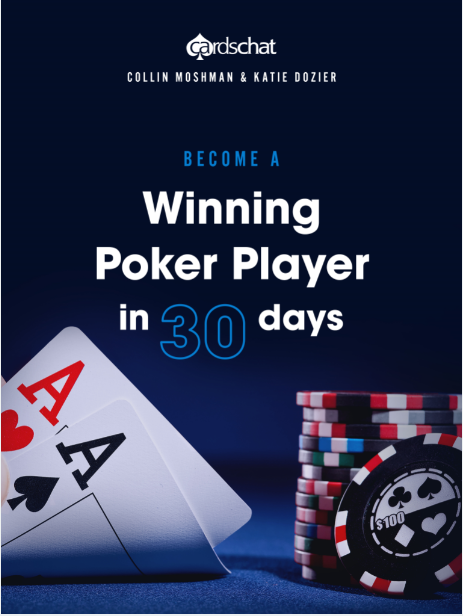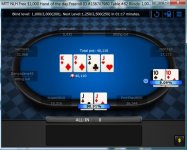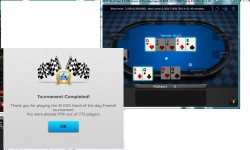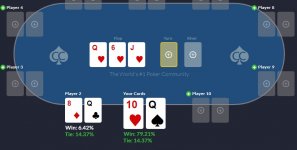Debi
Forum Admin
Administrator
Implied odds and Reverse Implied Odds are the topic of discussion on Day 9 of our course.
If you have not yet read Day 9 and watched the video for Day 9 - take a few minutes now to do that and then come back here to discuss it:
Implied Odds and Reverse Implied Odds
Implied odds is the ratio of the possible or likely amount we will win relative to the cost of calling. This is a very important concept if you are playing with deep stacks.
Reverse implied odds is having a made hand that's not likely to win us more money when it's best, and can lose us a lot of money when we are beat.
What did you learn from this lesson and what questions do you have for Collin and Katie?


If you have not yet read Day 9 and watched the video for Day 9 - take a few minutes now to do that and then come back here to discuss it:
Implied Odds and Reverse Implied Odds
Implied odds is the ratio of the possible or likely amount we will win relative to the cost of calling. This is a very important concept if you are playing with deep stacks.
Reverse implied odds is having a made hand that's not likely to win us more money when it's best, and can lose us a lot of money when we are beat.
What did you learn from this lesson and what questions do you have for Collin and Katie?


Last edited:






















